By Sumaiya Farheen, 21st of May 2025.
You wake up tired. Climbing stairs feels like hiking a mountain. Your arms feel heavy and stiff, as though they’re weighed down by invisible burdens, and even holding a hairdryer or cooking dinner becomes a challenge. If this sounds familiar, you’re not alone-and you’re not imagining it.
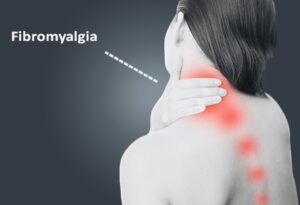
Fibromyalgia and muscle fatigue often go hand in hand, yet this hidden symptom doesn’t get the attention it deserves. While many recognize the pain and poor sleep associated with fibromyalgia, fewer people understand the overwhelming muscle fatigue and weakness that affects your balance, mobility, and confidence.
According to NHS insights on fatigue symptoms-
Fibromyalgia is more than just tiredness. It’s a nervous system in overdrive, disrupted sleep cycles, hormone imbalances, and reduced physical activity — all working together to leave your muscles feeling drained and reconditioned.
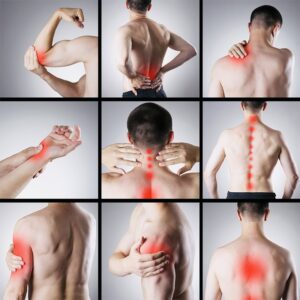
But here’s the empowering truth: muscle fatigue isn’t permanent. With the right approach, you can gently rebuild your strength, improve your energy, and take back control of your daily life.
What Causes Muscle Weakness in Fibromyalgia?
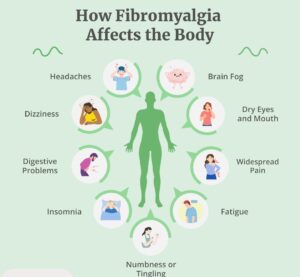
Muscle weakness in fibromyalgia isn’t caused by injury or nerve damage, like in some conditions. Instead, it’s the result of several factors-
1. Nervous System Sensitivity-
Fibromyalgia makes your nervous system more sensitive, so even mild sensations feel like pain or exhaustion, leading to muscle weakness.
2. Poor-Quality Sleep-
Many people with fibromyalgia struggle with poor sleep, which prevents muscles from fully recovering, making fatigue worse.
3. Hormonal and Stress Responses-
Chronic stress and hormonal changes can disrupt energy levels and pain regulation, causing muscles to tire more easily.
4. Deconditioning-
Pain and fatigue can lead to less movement, causing muscles to weaken over time as you become less active.
Can Fibromyalgia Affect the Way You Walk?
Yes – and it often does. Many people with fibromyalgia notice changes in balance, posture, and walking style. But this doesn’t mean you’ll lose the ability to walk.
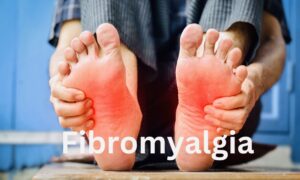
The truth is, fibromyalgia can affect your balance, posture, and gait. You might feel unsteady or have trouble walking long distances. But it’s very rare for fibromyalgia alone to cause complete immobility.
In fact, the sooner you start rebuilding your strength and improving your movement patterns, the more likely you are to avoid serious mobility issues.
Is Fibromyalgia Weakness Like MS or Other Conditions?
It’s easy to confuse fibromyalgia with conditions like Multiple Sclerosis (MS) or rheumatoid arthritis because of overlapping symptoms like fatigue, joint pain, and weakness.
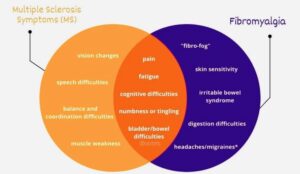
But unlike MS, fibromyalgia does not cause nerve damage, numbness, or permanent muscle loss. MS symptoms often show up on MRI scans. Fibromyalgia symptoms don’t.
Finally, is Fibromyalgia A Disability?
Below are some examples of the issues that you might have because of fibromyalgia.
Because of fibromyalgia related cognitive issues (fibro fog), you may have difficulty following cooking instructions and so not prepare food to an acceptable standard.
You may not have any appetite for food because of stomach pain, bloating or nausea and so need prompting or supervision to eat and drink.
Stiffness in your limbs may mean you are unable to pull clothes over your head or reach down to your feet to dress or undress, even with the use of aids, and so need assistance.
Fibro fog may prevent you from being able to follow timetables or read maps to plan a journey or may mean that you take more than twice as long as someone who does not have fibromyalgia.
At Back To Health Wellness, we understand that fibromyalgia and muscle fatigue affect every part of your life, so we approach your recovery as our experienced therapists combine their expertise in osteopathy, physiotherapy, and soft tissue therapy to help relieve tension, reduce inflammation, and improve your posture – all without overwhelming your system. Through simple home-based exercises and personalized pacing strategies, we help you gradually rebuild your strength and endurance at a pace that suits you.
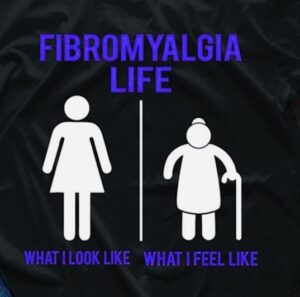
We also recognize that recovery isn’t just about physical treatment. Our team incorporates breathwork, posture correction and pacing techniques to help you manage both the physical and emotional aspects of fatigue. Additionally, we offer custom orthotics to enhance your balance and stability as you go about your daily activities.
Together, we create a recovery plan that works for you — a plan that’s supported by evidence-based treatments and tailored to your unique needs.
